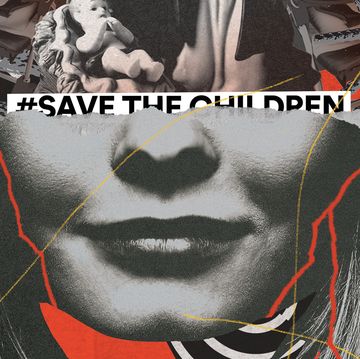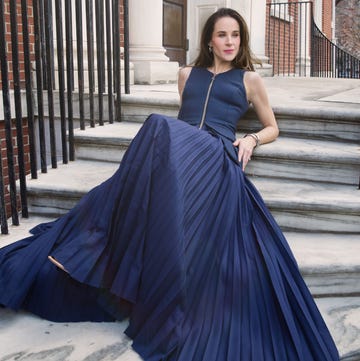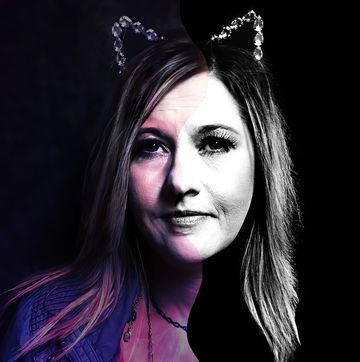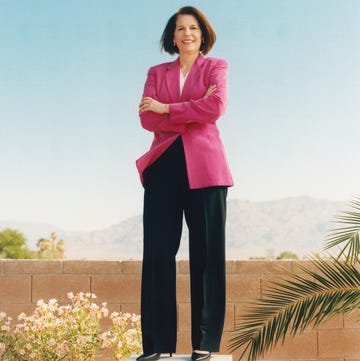Surely Chicago’s O’Hare Airport has been backdrop to myriad spousal spats, with its maddeningly unavailable gates, terminal transfer buses that inexplicably stop running at 8:30 p.m., and weather that goes from fair to foul in minutes—all while a balmy aroma wafts from the food courts. But for my husband and me, ORD was the scene of more than a stressful travel tiff—it saw the nadir of our marriage.
We were headed from L.A. to Paris to attempt a marriage reset. For the past year we hadn’t been connecting the way we once had. We were still adjusting to parenthood, but it was more than that. He rarely laughed anymore and seemed distant and mentally exhausted. In return, I felt rejected, abandoned, and resentful. We had yet to spend a night alone since the birth of our son, and we needed a quick fix.
My husband had a conference near the Arc de Triomphe—a monument famous for victory marches—so we scraped together frequent flier miles so I could tag along for a few impractical days. As our first flight landed at the airport named for Butch O’Hare—a WWII pilot famous for being gunned down by friendly fire—I fantasized about crepes and Sancerre. Even the long transatlantic flight to follow appealed to me as glorious uninterrupted screen time.
We were wheels down in Chicago with plenty of time before our connecting flight. But with no gate available, we sat on the plane for hours. Finally off the plane, we sprinted to see our Paris-bound Dreamliner rolling back from the jet bridge. There were no more flights to Paris until the next night, and we had to face reality.
All the resentments and anger we were trying to cast aside exploded in a revival of blame. We blamed each other for the missed flight and then we blamed each other for blaming each other. He disappeared into the bathroom and emerged having booked two tickets: one for himself, to Paris via JFK the next morning, and one for me, home to Los Angeles alone. He flew east and I flew west, putting a continent and an ocean between us.
On my flight home I thought about how my husband’s personality had evaporated over the past year. Some nights he barely had the energy to talk. He struggled to recall basic things, like people’s names, too often for a 36-year-old. He was in a constant state of mental fatigue and it felt like he had given up.
When he returned from Paris we talked about the state of our union. The conversation devolved into his and my shortcomings and our own scapegoats, but we concluded that repairing the marriage was possible. We simply needed to work harder.
We tried marriage counseling. At times it buoyed us, but it also required childcare and ate into the scarce time we had alone together. We tried everything on offer in the wellness world: meditation, melatonin, detox diets, CBD oils and screen bans. We were willing to try anything that promised results, but it felt like flinging rocks in the air, only to watch each one inevitably succumb to gravity.
Things felt dark. My mother asked if my husband was alright. Of course he is, I’d say. My cousin, looking at his sunken face, asked if he lost weight. No, I’d joke, men just get better looking with age. What was I supposed to say, his personality changed and our marriage is imploding? In the mornings, I’d often wake up to the sound of him rattling a bottle of Advil. It was no big deal he said, just another allergy headache. We limped along.
Outside of our marital coursework, I scheduled overdue physicals for us. He told me he’d never taken a sick day in his life, it would be a waste of time, but obliged. Then we got the results.
A routine blood test showed so much calcium in my husband’s blood that his doctor assumed it was an error. After more tests, he was diagnosed with hyperparathyroidism. In simple terms, one of four rice grain-sized glands near his thyroid, in his neck, had become overactive. It had grown to the size of a gumball and was allowing a surplus of calcium in his body. Hyperparathyroidism is rare—about 100,000 Americans are diagnosed with it yearly, most commonly postmenopausal women—and it is easily cured by surgically removing the overactive gland.
My husband’s endocrinologist recommended surgery. He assured her that he felt great, but she explained that hyperparathyroidism comes on so gradually that he may not have realized how bad he felt. As I read about the disease, I started to connect some dots.
Symptoms of hyperparathyroidism can include headaches, bone fractures and kidney stones, as well as depression, fatigue, and obsessive-compulsive disorder. The Annals of Surgery associates the disease with decreased ability to complete daily tasks and an inability to interact socially. According to The Mental Health Clinician, changes in calcium levels are thought to slow nerve functions and neurotransmission rates, which can lead to personality changes, depression, anxiety and hostility. Curiously, many patients, like my husband, feel they are asymptomatic before surgery. I, however, began to wonder.
Home from surgery, with his stitched neck still covered in a bandage, he perked up and did a little dance in the bathroom. I was taken aback. He started razzing me again with a devilish wit. Was this real? His cheeks came back, maybe only because he was noticeably smiling. Finally we both acknowledged the change. “Do I seem different to you?” he asked. I froze. I was scared to say it out loud. I cracked a smile. “Uh, yes?”
He was amazed by how much easier his life had become. He said he felt as if he had been living in first gear, spinning his wheels so hard, when everyone else cruised. He started conversations again, and befriended parents on playgrounds. He made dinners and planned a weekend away. Small things all of the sudden seemed momentous. The laughter came back. He had an energy for life that had been dormant for a year. Had a surgeon solved our marital problems by cutting a gland out of his neck? It seemed too good to be true and too sci-fi to be real.
As things returned to normal, the pressure to stay happy nagged at me. When a disagreement came up about childcare or schedules or finances, I caught myself watching him like a specimen and filing any marital complaints quietly to myself. Any potential conflict was quickly ceded, usually by me, because he was cured, so we were happy, so everything had to be fine, forever. But no marriage can rely on biology alone. We had to remember and relearn that it was normal for us to have fights, even stormy blowups.
It’s been eight months since the surgery, and the lightness and laughter between us remains. I still wonder about how neat and tidy this has all been, if it’s possible we both rallied around the same narrative of a blood test saving our marriage, and in doing so made it truer than it actually was.
But maybe that doesn’t matter. Maybe he feels better now, and we were given a gift to offload all the blame, frustration and resentment onto a disease no one was responsible for. Maybe the therapy and all the other efforts came together at the same time. But when I glimpse his scar across the bottom of his neck it makes me smile with gratitude. Paris wouldn't have been the magic pill we needed. It took sweat and tears to reset us, but mostly a blood test.
Lizzie Garrett Mettler is a Los Angeles-based writer.. She has written for The Los Angeles Times, Vogue and Condé Nast Traveler—among many other publications, where she has covered lifestyle subjects, culture, and social issues. Her first book, based on the award-winning blog Tomboy Style (2010-2015), was published by Rizzoli in 2012.














